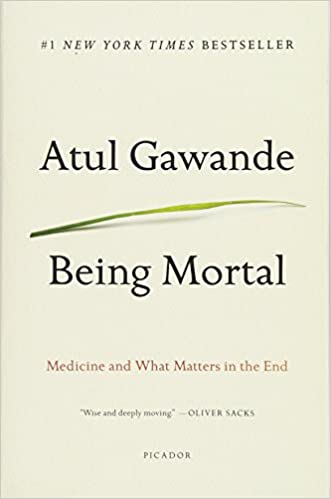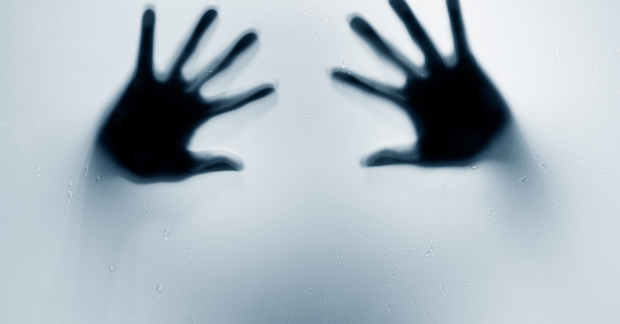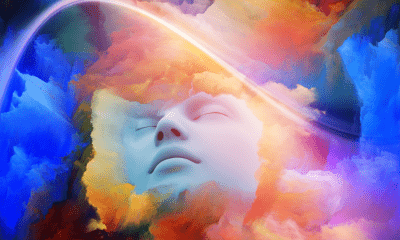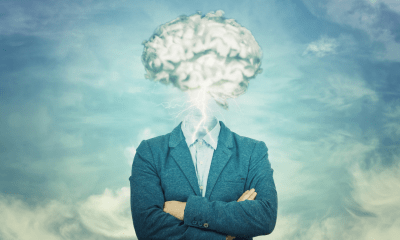Death is inevitable. Someday, your vision will fade to black. Ultimately, 80 years from now, or five years, or even tomorrow, you’ll die.
Your family and friends can surround you, or you can be completely alone. The many ways and manners you could pass away are endless and uncertain, but if there is one thing that’s certain about death– it’s that it’s guaranteed.
It’s a human instinct, something primal in us, that makes us so afraid of death. And the fear of death isn’t exclusive to humans. Every living being on earth is naturally opposed to dying and will fight tooth and nail not to die.
But have you ever thought, why are we so afraid of dying? Why does the thought of a heart monitor flatlining so paralyzing and terrifying?
Welcome to Snapreads! Today, our subject is five reasons why humans fear death. Let’s get started.

Being Mortal
by Atul Gawande
⏱ 16 minutes reading time
🎧 Audio version available
Fear of the Afterlife
What first pops to mind as one of the reasons humans are so afraid of death is fear of the afterlife. All these centuries and thousands of years of technological discoveries, and no one really knows what happens to our souls after death.
The information is exclusive to those who are, well, in their graves. Most people believe what will happen, but even a belief is not the same as knowing. And even then, people are afraid that they’ll be deemed unworthy or not good enough to enter the promised land of paradise.
They’re scared that they’ll end up suffering in a hellish underworld for all eternity to atone for their sins.
On the other hand, other cultures believe that we start all over again by rebirth or reincarnation. Others have an even gloomier perspective, and it’s that we’re doomed to go through endless monotony and eternal doom in the afterlife.
At the end of the day, or “life,” should we say, the different cultural beliefs about the afterlife are endless.
But let’s say you’re one of those people who believe in a paradise and a hell. We’re still afraid of death, no matter how good and righteous we are. This part of us is primal and subconscious.
But if all the cards are on the table, if humans did know with absolute, crystal clear certainty what will happen after they pass into the next stage of existence, they would still be afraid.
And if it ever came out that the afterlife was this magical, blissful place, then suicide rates would go through the roof because everyone will be racing to get to that promised land. So one of the only things stopping us from taking control of our destiny is the terrifying uncertainty that surrounds death. The fear of the unknown is paralyzing.
Fear of Losing Control
The majority of humans like to live in a routine. Their life is pre-planned, everything needs to be in neat little boxes, and they’re mostly in control. Sure, they may not control the weather or what other people think, but they still maintain some semblance of control.
But, death or the passing of a loved one is uncontrollable and out of our hands.
So when humans freak out about losing control over something in their lives, imagine how scary death is. Losing one’s life is a centuries-long debate. People have been discovering new ways to control death with claims of “fountain of youth” and “elixirs of eternal life” and such, but even in the age of self-driving cars, the most humans have been able to bring forth are ways to prolong life, not avoid death.
And the scariest thing about death is that it can come out of nowhere. A seemingly healthy person can suddenly be diagnosed with a terminal illness. A freak accident can knock a piano out of a twelve-story building and onto someone just in town for the night. So not only can humans not control what happens in their afterlife, but they also can’t control their destiny– how they’re going to meet their inevitable demise.
Fear of Leaving Things Undone
As Mark Twain put it, “The fear of death follows from the fear of life. A man who lives fully is prepared to die at any time.” But what if that life hasn’t been fulfilling? What if you never find that meaning, that big-picture driving force? That success? That serenity?
Everyone has seen all the movies and TV shows where ghosts come back to haunt their loved ones because they have “unfinished business.” This does not sound enjoyable or fulfilling; who would want to turn out like that? Predating death is the fear of leaving things undone.
Right now, you’re living your best life. There are so many endless possibilities in life; there are so many things that you can achieve, so many dreams that you haven’t even begun to explore– if only you had enough time.
No matter how much of it we have, time is something that we can never get enough of– or get more of it. And no matter how long or short it is, there is only one lifetime per person to explore everything life has to offer.
Everyone is relying on tomorrow and the future. We put off plans to accumulate enough money to go on that vacation we have been longing to go on.
So most plans and hobbies are postponed either for money or because they don’t have time for them at the moment. But guess what? Those “golden years” aren’t guaranteed for everyone. Even those older individuals have many regrets over all the things they didn’t have the time to achieve in life.
The concept of having so many planned, so much saved up, and having the rug ripped out from underneath your feet sends a different kind of fear through your gut. When your entire life is dedicated to achieving one thing after another, thinking that you may not have the chance to do all you want is terrifying.
And that’s the financial, goal-achieving side of life. There are so many more things, and that’s why the fear of not getting what you expected out of life before death knocks on your door is so overwhelming.
Related: How to Deal with Aging, Growing Old, and Death
Fear of Being in Pain
Did you know that older individuals tend to fear death less? Contrary to popular belief, the older someone is, and the closer they are to dying, they’re more acceptant of it.
Whether that’s attributed to older individuals having experienced more out of life, they no longer have that youthful fear of missing out, or it can because they’ve been around death and witnessed it in others that they’re no longer that afraid of it.
Those exposed to death, such as funeral directors or doctors and nurses, have less fear of death.
And the fear of death can just come down to being afraid of how much it’s going to hurt. No one wants to get sick and be in pain and rack up thousands and thousands in medical bills. Death is often thought of as the destruction of the human character. And the complete “annihilation of the human character” sounds pretty painful.
And this particular fear feeds into another, which is the fear of dying alone. People are afraid that the process of dying will be painful and agonizingly prolonged, which will reduce the quality of life and the limited time that remains to that person on earth.
So far, medical science and pharmacology have been a dramatic help in reducing the pain associated with injuries and some illnesses. But on the contrary, medical support can often compromise a person’s ability to enjoy life, communicate, and be involved with others. People are also afraid to be dependent on others as there’s a specific loss of self-esteem.
And coming back to the fear of dying alone, thanks to that medical technology that’s easing the pain of passing, many people end up spending their last days or hours in a sterile, impersonal hospital setting, away from their comforting homes and familiar surroundings. This confinement and isolation can make someone’s fear of dying alone paralyzing.
Leaving Loved Ones Behind
Not all the reasons why people fear death are self-centered and dependent on personal desires. A lot of people are terrified of what happens to their families after they unwillingly leave them behind. Even if you accept your mortality and find peace in knowing that everything must end, your loved ones will still suffer.
Grief is one of the ugliest sides of death, mostly because everyone has lost or will lose someone close to their hearts. That suffocating pain of grief never really goes away, and no one wants to inflict that on their loved ones.
Grief aside, there are other matters to worry about. If you’re the sole provider to your family, death feels like it will threaten your family’s well-being as well on an economic level. Anything from losing the house and bankruptcy to loss of invaluable medical benefits will affect the remaining family.
What Is Snapreads?

With the Snapreads app, you get the key insights from the best nonfiction books in minutes, not hours or days. Our experts transform these books into quick, memorable, easy-to-understand insights you can read when you have the time or listen to them on the go.



